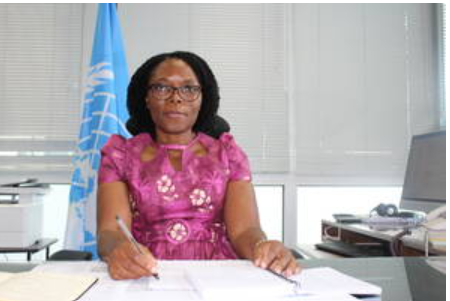|
Getting your Trinity Audio player ready…
|
By Ms. Farayi Zimudzi – Food and Agriculture Organization of the United Nations (FAO) Representative in Ethiopia
On 16 October 2022, Ethiopia joined the rest of the world to commemorate International World Food Day under the theme– “Leave no one behind. Better production, better nutrition, a better environment, and a better life”.
The theme calls for global solidarity and collective action to make sure that no one is left behind through the transformation to more efficient, inclusive, sustainable, and resilient agrifood systems for better production, better nutrition, a better environment, and a better life.
Our globalized world is one where our economies, cultures, and populations are becoming increasingly interconnected. Some of us are vulnerable because of who we are or where we live, but the reality is that we are all fragile. When someone is left behind, a chain is broken. This impacts not only the life of that person but also ours.
Just like in the past three years, we are marking World Food Day when Ethiopia is responding to myriad challenges in the food and agriculture sectors. Some parts of the country are facing up to five consecutive failed rainfall seasons, while others are facing disruption of agricultural production due to conflict and insecurity. Moreover, economic challenges, including high commodity prices and the adverse effects of the COVID-19 pandemic and external pressures, still prevail. The people most affected by these shocks are often the rural population that relies on agriculture for food and livelihood, constituting 80 percent of Ethiopia’s population.
Therefore, as we respond to the prevailing shocks and devise strategies for long-term agricultural development, it is important to provide timely and well-targeted support to protect the most vulnerable. This may mean providing cash, and agricultural inputs, as well as improving agricultural infrastructure. Only in doing so will we achieve equitable and sustainable development where everyone counts.
I am pleased to note that “Leaving no one behind” is a central theme in the FAO and Government of Ethiopia Country Programming Framework for 2022 – 2025. Among others, the Framework prioritizes tackling food insecurity by advancing inclusive and gender-responsive economic growth, livelihood enhancement, and extreme poverty eradication. It also focuses on enhancing natural resource management and agricultural production system to protect, restore and promote sustainable use of ecosystems.
FAO continues to scale up our emergency and resilience-building programs targeting over 1.5 million households affected by climate-related disasters, pests and diseases, and conflict this year. Our support includes the provision of agricultural inputs, water infrastructure, cash transfers, training, equipment, livestock health services, and animal feed and support to extension services. We also continue to support the strengthening of Ethiopia’s social protection programme, especially in making it more responsive to shocks. FAO is also implementing projects aimed at improving nutrition, natural resources management, and animal and crop production. In the agri-business sector, FAO supports integrating small farmers and small and medium agribusinesses into value chains.
Within the spirit of leaving no one behind, FAO works with the most vulnerable countries, including Ethiopia, through the Hand-in-Hand Initiative, which supports the implementation of nationally led, ambitious programs to accelerate agrifood systems transformation by eradicating poverty, ending hunger and malnutrition, and reducing inequalities. In Ethiopia, the Initiative focuses on accelerating production and productivity for an increased supply of raw materials to the Integrated Agro-Industrial Parks while maximizing the benefits to the poorer segments of the rural population. FAO’s targeting strategy in all programs ensures that these interventions reach the most vulnerable and deserving individuals and communities, including women, youth, refugees, displaced people, and the aged.
For FAO, leaving no one behind means working on many fronts simultaneously and requires collective actions. All stakeholders, including Governments, the private sector, academia, civil society, and individuals, need to work together in solidarity to prioritize the right of all people to food, nutrition, peace, and equality.
At the individual level, you can support smallholder farmers by purchasing locally produced food at farmers’ markets and looking out for labels indicating support for smallholders. Although they produce more than 33 percent of the world’s food, many smallholder farmers suffer poverty and food insecurity. They are often excluded from decision-making processes and have limited access to finance and innovative technologies, especially in developing countries. We can also help mitigate climate change, which affects the most vulnerable population, by being more climate-smart in our actions. Choose local foods that travel short distances from farm to table, limit consumption of resource-intensive foods and eat seasonal fruits and vegetables, which often require fewer chemical inputs. Reduce energy consumption by opting for renewable energy sources to reduce the impact of human activity on our environment and keep it healthier for food production.
As we commemorate World Food Day, let’s reflect on what we can do differently to prioritize the right of all people, especially the most vulnerable and marginalized, to food, nutrition, peace, and equality.
